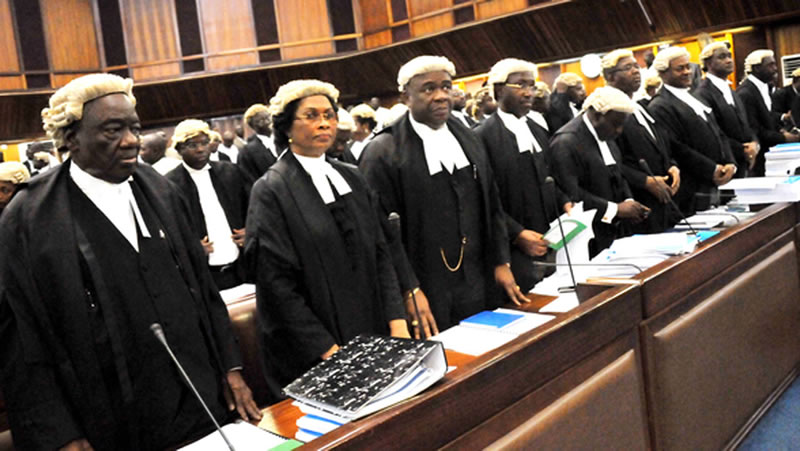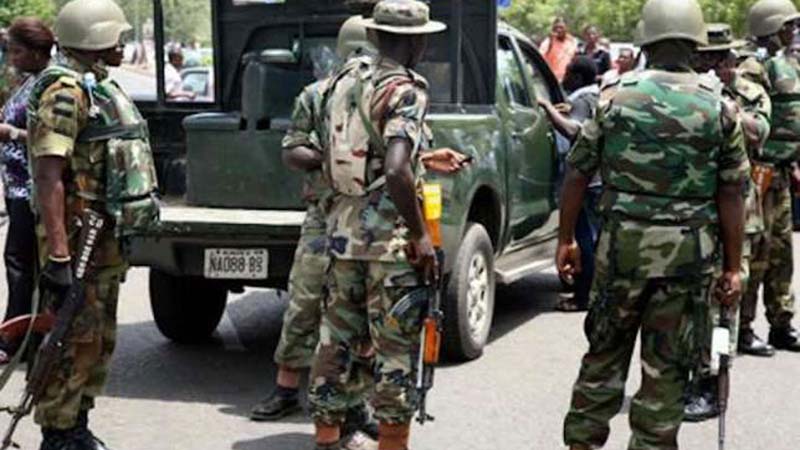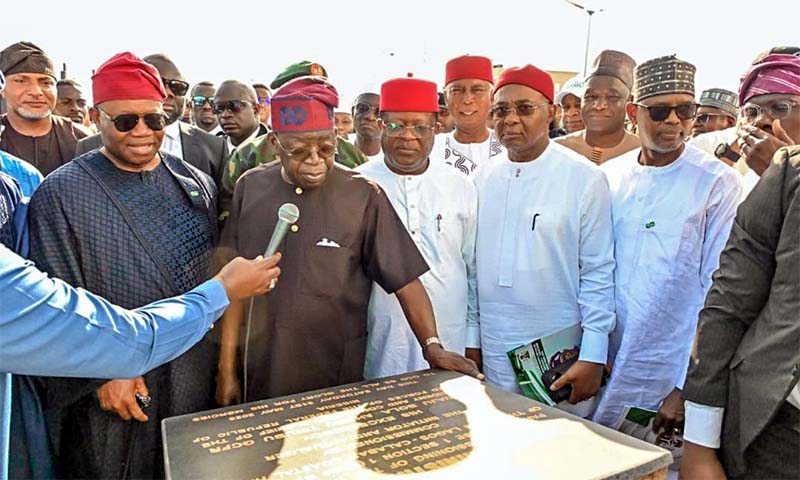“Unless urgent reforms are enacted, Nigeria’s Supreme Court risks becoming a tool of political warfare rather than an institution of justice as the Nigeria Supreme Court sets a dangerous precedent that threatens Nigeria’s legal and democratic stability.”
The recent ruling on the Rivers State crisis echoes the 1887 judicial exile of King Jaja of Opobo—a politically motivated decision disguised as legal justice. 137 years later, history repeats itself.
The Judicial and Constitutional Crisis in Rivers State
Introduction: The Supreme Court’s Precedent and Judicial Hierarchy
In legal jurisprudence, a fundamental principle of judicial precedent is that a smaller panel of judges cannot overrule a larger panel within the same court hierarchy. This principle ensures consistency, stability, and credibility in legal rulings.
As Prof. Chidi Odinkalu has pointed out, a five-person panel of the Supreme Court cannot overrule a seven-person panel. This principle is not only grounded in common legal doctrine but also enshrined in constitutional practice worldwide.
In light of the recent Supreme Court ruling affecting Rivers State, this judicial standard appears to have been disregarded—raising serious constitutional concerns, public outcry, and political controversy.—
A Legacy of Legal Injustice in Rivers State
The territory now known as Rivers State has a history of legal and political manipulation, dating back to the colonial era. The exile of King Jaja of Opobo in 1887 under British rule remains a haunting parallel to the legal and political battles unfolding today.
In 1887, King Jaja was judicially removed through a British-engineered trial in Accra, Ghana.
In 2025, Governor Siminalayi Fubara faces a judicially orchestrated political battle that threatens his leadership.
Both cases revolve around control over resources, political loyalty, and external interference in Rivers State governance.—
The Legal and Political Background of the Rivers Crisis
The current crisis stems from a power struggle between Governor Siminalayi Fubara and his predecessor, Nyesom Wike.
1. Defection of Lawmakers (December 2023)
27 members of the Rivers State House of Assembly, led by Speaker Martin Amaewhule, defected from the PDP to APC.
The Supreme Court (2015 ruling) established that lawmakers lose their seats upon defection unless their party is irreparably divided.
Despite this constitutional provision, the defectors continued operating as lawmakers.
2. Legislative Power Struggle (December 2023 – 2024)
With the defection of 27 lawmakers, only five pro-Fubara lawmakers remained in the House.
The House of Assembly premises were demolished, allegedly under government orders.
The remaining five lawmakers passed the 2024 Appropriation Bill, which Fubara signed into law.
3. Supreme Court Ruling (February 2025)
A five-person Supreme Court panel ruled in favor of the defected lawmakers, declaring that only the pro-Wike faction could pass the state budget.
The court ordered the Central Bank of Nigeria to withhold Rivers State’s federal allocation unless the budget was passed by the pro-Wike lawmakers.—
Constitutional and Judicial Violations in the Supreme Court’s Decision
The ruling has serious constitutional implications.
1. Violation of Judicial Precedent
In 2015, the Supreme Court (seven-justice panel) ruled that lawmakers lose their seats upon defection unless their party is in crisis.
In 2025, a five-justice panel effectively overturned this precedent without reference to the 2015 ruling.
Judicial hierarchy dictates that a five-justice panel cannot overrule a seven-justice panel—this is a fundamental breach of legal precedent.
2. Unconstitutional Withholding of State Funds
The Supreme Court ordered the Central Bank of Nigeria to withhold Rivers State’s federal allocation.
This action punishes the people of Rivers State for a political dispute between elites.
The Constitution guarantees the financial autonomy of states, meaning federal allocations cannot be arbitrarily withheld.
3. Judicial Overreach into Political Disputes
The Supreme Court should not determine political disputes; its role is to interpret the law impartially.
By issuing rulings that favor one political faction over another, the court has damaged its credibility and neutrality.—
The Dangers of a Politicized Judiciary
This case exemplifies how Nigeria’s judiciary is becoming an instrument of political control.
The Chief Justice of Nigeria (CJN) Kudirat Kekere-Ekun’s ties to Wike have raised serious concerns about judicial independence.
The speed of the case’s progression—from the Federal High Court to the Supreme Court in record time—suggests political influence rather than due process.
The precedent set by this ruling is dangerous:
It suggests that state governors can be controlled through judicial means.
It opens the door for federal interference in state financial autonomy.
It weakens public trust in the judiciary, creating instability in democratic governance.—
Judicial Recommendations for Restoring Credibility
To address these issues, urgent reforms are needed to protect the integrity of the Nigerian judiciary:
1. Supreme Court Reform
The National Judicial Council (NJC) must ensure that larger panels hear politically sensitive cases to prevent smaller panels from overturning major precedents.
Judicial appointments must be transparent to prevent political influence.
2. Legislative Safeguards Against Political Manipulation
The National Assembly should enact laws preventing the arbitrary withholding of state funds.
Defected lawmakers must automatically lose their seats, as established by the 2015 ruling.
3. Judicial Accountability
A Judicial Oversight Committee should review controversial Supreme Court rulings and hold judges accountable for political bias.—
Conclusion: A Supreme Injustice
The 2025 Supreme Court ruling on Rivers State is a direct attack on constitutional democracy. By:
Overruling a seven-justice panel with a five-justice panel,
Blocking financial allocation to a state based on political disputes,
Compromising judicial neutrality,
The Supreme Court has set a dangerous precedent that threatens Nigeria’s legal and democratic stability.
This ruling echoes the 1887 judicial exile of King Jaja of Opobo—a politically motivated decision disguised as legal justice. 137 years later, history repeats itself.
Unless urgent reforms are enacted, Nigeria’s Supreme Court risks becoming a tool of political warfare rather than an institution of justice.
What do you think? Is the Supreme Court still a defender of justice or has it become a political instrument? Share your thoughts!






